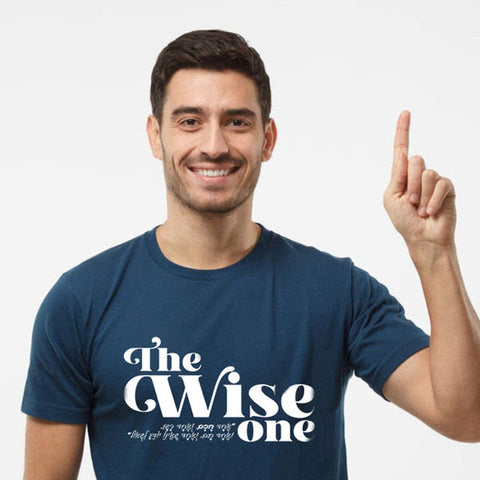Passover 2024
As the calendar turns to April 22-29, 2024, the Jewish community across the globe prepares to embark on a deeply spiritual journey commemorating Passover, one of the most significant festivals in Jewish tradition. This eight-day festival, celebrated with fervor and reverence, marks the Israelites' miraculous exodus from Egyptian bondage, a story of struggle, faith, and divine intervention. It's a time for reflection, celebration, and a profound exploration of freedom's many dimensions. This year, as we gather with family and friends to observe this sacred tradition, let's delve into the essence of Passover and the enduring lessons it imparts.
The Essence of Passover
Passover, or Pesach in Hebrew, is a festival that commemorates the liberation of the Israelites from centuries of slavery in ancient Egypt. According to the biblical narrative, under the leadership of Moses and through the divine intervention of ten plagues, the Israelites were freed from Pharaoh's tyranny. The highlight of Passover is the Seder, a ritual-packed feast that occurs on the first two nights, where the story of the Exodus is retold through the Haggadah. This narrative is not just a recounting of historical events but a living dialogue between generations, engaging participants in a deep exploration of themes like freedom, oppression, and redemption.
The Seder: A Tapestry of Symbols and Rituals
The Passover Seder is rich with symbolism, each element on the Seder plate echoing the Israelites' suffering, resilience, and ultimate liberation. Matzah, or unleavened bread, symbolizes the haste with which the Israelites fled Egypt, leaving no time for their bread to rise. Bitter herbs, such as maror, remind us of the bitterness of slavery. The charoset, a sweet paste made of fruits and nuts, represents the mortar used by the Israelite slaves to build the Egyptian pyramids. Each of these elements serves as a tactile and gustatory means of connecting with our ancestors' experiences, bridging millennia through taste and tradition.
The Four Sons: Lessons in Diversity and Inclusion
At the heart of the Passover Seder lies the narrative of the Four Sons, a compelling exploration of diverse responses to tradition and knowledge. This narrative segment shapes a profound dialogue on diversity and inclusion, pivotal to the Seder's teachings. Each son—Wise, Wicked, Simple, and the One Who Does Not Know How to Ask—brings forth unique perspectives, engaging us in a deeper understanding of our communal and individual identities.
The Wise One exhibits a keen interest in the intricacies of Passover observances, embodying a quest for knowledge and understanding. This figure prompts us to appreciate the value of inquiry and the depth of engagement with our heritage.

The Rebellious One stands apart, questioning the relevance of the tradition to the self. This character challenges us to confront alienation within our communities and the importance of dialogue in bridging divides.

The Simple One approaches the tradition with straightforward curiosity, without the complexities of critical or cynical questioning. This son's perspective encourages us to embrace simplicity and directness in our spiritual and educational pursuits.

The One Who Does Not Know How to Ask represents potential untapped due to unawareness or inability. This figure highlights the collective responsibility to foster an environment where questions are encouraged, and every person's growth is nurtured.
Through the lens of these four archetypes, the Haggadah invites us to reflect on the richness of human experience and perspective, emphasizing the importance of inclusivity, empathy, and understanding. It serves as a reminder that our strength lies in our ability to recognize and embrace the diverse ways individuals engage with their heritage and the communal journey towards learning and spiritual enrichment.
By integrating these narratives and their symbolic representations into the fabric of the Seder, we are reminded of the power of storytelling in fostering a culture of inclusivity and the value of meeting every individual "where they are." In doing so, we celebrate the diversity of thought and experience that enriches our communities and deepens our collective experience of Passover.
Chametz and the Spirit of Renewal
The prohibition of chametz (leavened bread) during Passover is a powerful metaphor for personal growth and renewal. Just as we meticulously remove chametz from our homes, we are invited to reflect on what "leaven" we might carry within us—habits, thoughts, or attitudes that cause us to "rise" with ego or pride. The act of eating matzah, the "bread of affliction," encourages humility and reflection, fostering a spirit of renewal and readiness to embrace freedom in its fullest sense.
Passover 2024: An Invitation to Reflection and Renewal
As we approach Passover 2024, let us embrace this opportunity to reflect on the themes of freedom, redemption, and renewal that are as relevant today as they were in ancient times. In a world where the values of community and liberation are increasingly important, Passover offers a timeless framework for exploring these ideals. It challenges us to consider our own journeys towards freedom, both as individuals and as a collective humanity.
The Universal Message of Passover
Beyond its significance to the Jewish community, Passover carries a universal message of hope and liberation. It reminds us of the enduring human spirit's capacity to overcome adversity and aspire towards a world marked by freedom, justice, and peace. As we sit at our Seder tables, let us remember those in our world still striving for their liberation, and let our retelling of the Exodus story inspire us to action in our lives and communities.
In this context, the offerings from WearBU for Passover 2024, inspired by the Four Sons, are more than just garments; they are a means of engaging with and expressing the rich tapestry of Passover's lessons. Each piece serves as a wearable reminder of our shared heritage and the values we cherish, inviting us to carry the spirit of Passover into every aspect of our lives.
As we prepare to celebrate Passover 2024, let us do so with open hearts and minds, ready to embark on a journey of reflection, celebration, and renewal. May the stories we share and the traditions we observe deepen our connections to our past, to each other, and to the universal quest for freedom and dignity for all.
This Passover, as we gather to retell the ancient story of liberation and hope, let us also look forward, inspired by the lessons of the past to build a future of greater understanding, compassion, and peace. Let the spirit of Passover infuse our lives with its timeless message of renewal and redemption, reminding us that freedom is not only a historical fact but an ongoing commitment to living our values every day.







































